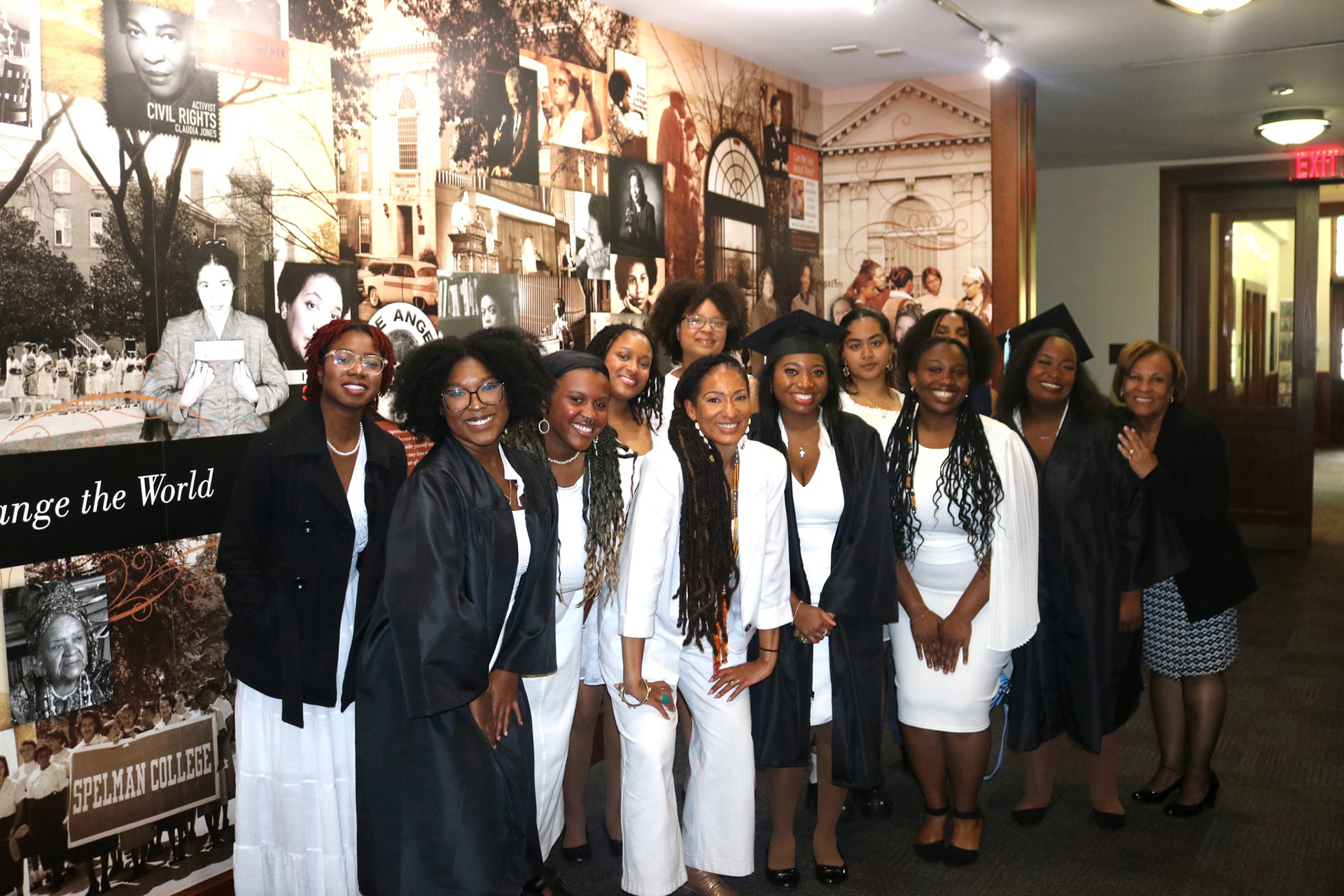 The Spelman College Social Justice Fellows Program, initiated in the fall of 2011, is a living and learning programmatic initiative that creates opportunities for a select group of Spelman women to “make a choice to change the world through social justice advocacy.” The initial funding for the Program was supported by The Atlantic Philanthropies Foundation. All students selected for the inaugural cohort were Pell Grant eligible with zero family contribution. The Program was subsequently funded by a Presidential Discretionary Grant funded through the Andrew W. Mellon Foundation. Neither grant is funding the Program at this time. The Program is partially subsidized by other institutional grants. Most recently, the Program received a grant from the Commerce Club Foundation to support limited programmatic initiatives.
The Spelman College Social Justice Fellows Program, initiated in the fall of 2011, is a living and learning programmatic initiative that creates opportunities for a select group of Spelman women to “make a choice to change the world through social justice advocacy.” The initial funding for the Program was supported by The Atlantic Philanthropies Foundation. All students selected for the inaugural cohort were Pell Grant eligible with zero family contribution. The Program was subsequently funded by a Presidential Discretionary Grant funded through the Andrew W. Mellon Foundation. Neither grant is funding the Program at this time. The Program is partially subsidized by other institutional grants. Most recently, the Program received a grant from the Commerce Club Foundation to support limited programmatic initiatives.
Students representing varied disciplinary areas are selected to participate in social justice advocacy internships, monthly colloquia experiences, book discussions and social entrepreneurship project design activities. The Program equips students with an understanding of how to effect change at the social, political, and legal policy levels, both nationally and globally.
Meet Our Social Justice Fellows
Social Justice Fellows are selected annually for the program. Students are selected as rising juniors and continue in the program through their senior year. The Program was designed for Fellows to receive semester stipends, special co-curricular experiences, internship placements, and faculty and alumna mentoring. In addition, fellows receive social justice advocacy training and experience in policy implementation.
Faculty and alumnae whose scholarship and work are related to the social justice interests of students are selected to provide guidance and assistance to students, serve as colloquia speakers, and provide general research support and extra-curricular social justice engagements and experiences.
Social Justice Fellows’ interests are varied and interdisciplinary. Social Justice Projects have included voter education and advocacy, campus awareness campaigns focusing on child prostitution and human trafficking, global women’s health and wellness, experiential learning centered on the illumination and eradication of the attendant consequences of poverty, and intercollegiate “difficult” dialogues addressing the intersections and dynamics of race, class, gender and other differences as lenses through which social justice advocacy must be addressed.
While limited funds do not allow for the selection of additional fellows, it was decided to establish an Associates Program. The Social Justice Fellows Associates Program allows broader participation in the programmatic aspects of the Social Justice Fellows Program, including internship placements, colloquia experiences and book discussions and for a limited number of students, residence in the newly renovated Laura Spelman Rockefeller Residence Hall, which has been designated as the campus center for the Social Justice Fellows Program. Approximately 40 students representing varied disciplinary areas are Social Justice Fellows Program Associates. Since the inaugural year, approximately 300 students have been impacted by the Social Justice Program either as Fellows or Associates to the Program.